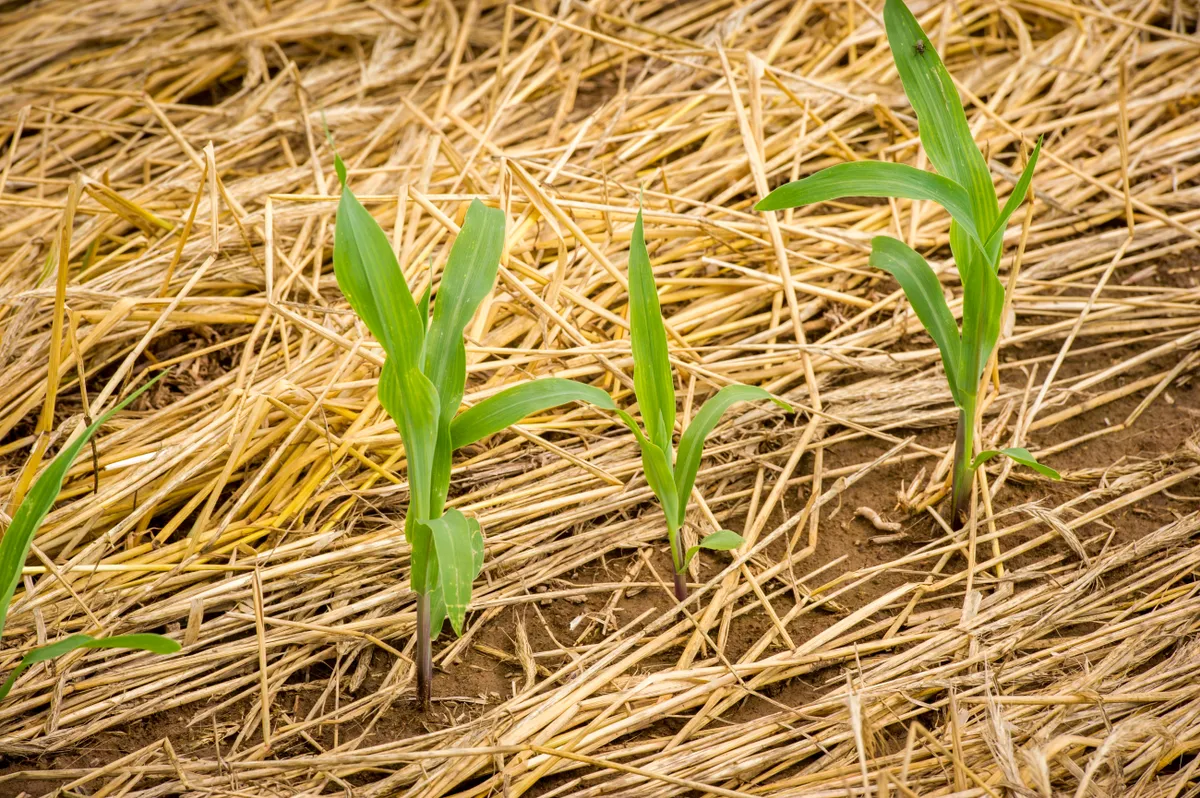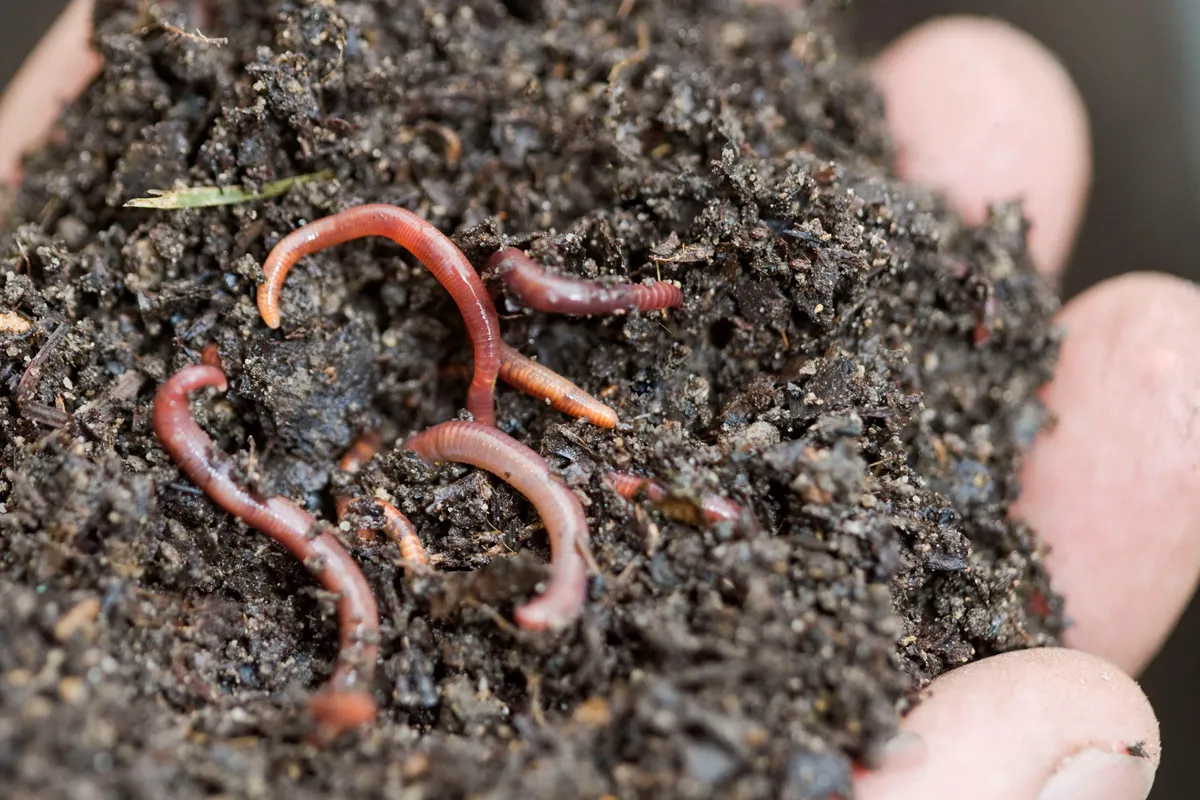Mulching should be on every gardener’s mind. An integral and fundamental part of gardening, mulching keeps plants looking beautiful and productive through the year. For many it's a passion that I’d wager rivals even the joy of planting. But the debate about the specifics of mulching is endless: from the perfect mulching depth to the right compost mixture for mulch.
- Our guide to everything you need for composting
- How to make foliar sprays
- Composting using the bokashi and worm methods
What is mulching?
In nature mulch comes from fallen leaves, plant debris and passing animals, and when we mulch in the garden we aim to recreate that cycle. However, the term mulch can be used to describe any material a gardener chooses to cover the soil with, such as compost, rotted manure, cardboard or even seaweed. Perhaps surprisingly, it is only recently that we’ve started to fully understand the sustainable and ecological benefits of mulching.
Why should we mulch?
It helps the soil
To understand the benefit of mulching we first must look at the soil. Soil is endlessly fascinating with a complex ecosystem and expanse that’s enough to rival our own universe. Under the microscope, soil is revealed as a place both beguiling and terrifying with an ‘eat or be eaten’ philosophy, and it’s that microbe eco-system that is one of the chief reasons we mulch; providing food and nutrients.
Bugs and beasties such as worms suck the mulch into the depths of the soil where microbes then begin to break it down. These microbes become swollen with nutrients like small bags of fertiliser that attract other hungry microbial predators and the waste from this digestion is then drawn up by the plant to ensure healthy growth. In essence we mulch to feed soil microbes, not the plant directly.
All this activity from worm tunnels, material shredding and microbe hunting develops good soil structure that allows enough water and oxygen to infiltrate the soil and limits the negative impacts from compaction, which can lead to anaerobic conditions, aiding plant diseases and pathogens.

Retaining water
Mulch also allows for beneficial moisture retention helping plants through hot summers, limiting the need for constant irrigation. While reducing soil erosion and wash off from excessive rain will help keep the soil protected from the frost and sun.
Mulching and weeds
Mulch also has an important part to play in weed suppression. Adding mulch will help smother early spring weed germination and allow you to avoid the mad rush of spring growth. It will keep your garden looking neat and tidy by covering messiness that winter can bring.
How to make mulch
The mulch you use really comes down to preference and accessibility. It must be made from good materials and in the correct way so as not to transfer weed seeds or disease. Being cost effective is also a bonus.
The best mulch for garden borders
Compost
A good garden compost is one of the best forms of mulch for plant and soil health and has been proven many times over. One chief benefit is that good compost contains a rich diversity of creatures, microbes and fungi that aid all soil health, comparable to a woodland floor. However, the usual dilemma is not being able to create enough for the size of the garden. Local council composts are a great resource and can be bought in bulk for a relatively cheap price, solving the quantity dilemma. They work even better when mixed with your own garden compost to help build microbe diversity. An added benefit is that you are also helping recycle household waste.
Animal manure
Rotted animal manures are also a good mulching substitute as these can be brought in bulk. But they can lack the microbial and nutrient diversity of compost, depending how long they have been allowed to break down and varies depending on the type of animal. Therefore it is important to research the source of the manure and the type of farming it has comes from.

Mulching with leaves, straw or cardboard
If you don’t have access compost or manure, there are many ways to mulch. Shredding and leaving garden debris can work effectively or simply gather up all your garden leave – but always be wary of slugs when using leaves or straw. Cardboard can also be placed over the soil but works best with annual or vegetable beds. It makes an amazing weed suppressant and works better when compost is applied over the top.
Woodchip mulching
Woodchip should only be used when the source is guaranteed to avoid acid imbalance or toxicity from certain trees, or by importing nasty chemicals used in timber treatment. If you can find a good sustainable wood source it is still required to be mixed with compost and broken down to balance the carbon : nitrogen balance. I find woodchip best used as a carbon source when making compost.
How to mulch
When to mulch?
Once you have chosen your desired mulch the next step is application. Simply spread it in late autumn/early winter or early spring.
How deep should you mulch?
Spread your mulch at a maximum of 2.5-5cm in depth. However, if weed suppression is the primary role then 7.5cm is more suitable but beware: anything more can end up being wasted or could even cause further damage to certain plants and the soil.
How to spread mulch?
For those of us that have to walk over the soil to mulch, put down wooden boards to walk on to reduce compaction, and never dig it in unless you have a real compaction problem. Digging will only destroy all the structure you are trying to create. Simply allow all the creatures living in your soil to do the work for you while you sit back and wait in anticipation for the gardening year ahead.
If you're looking for a mulching lawnmower, here's our round up of the best.
